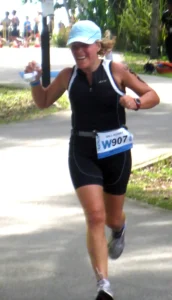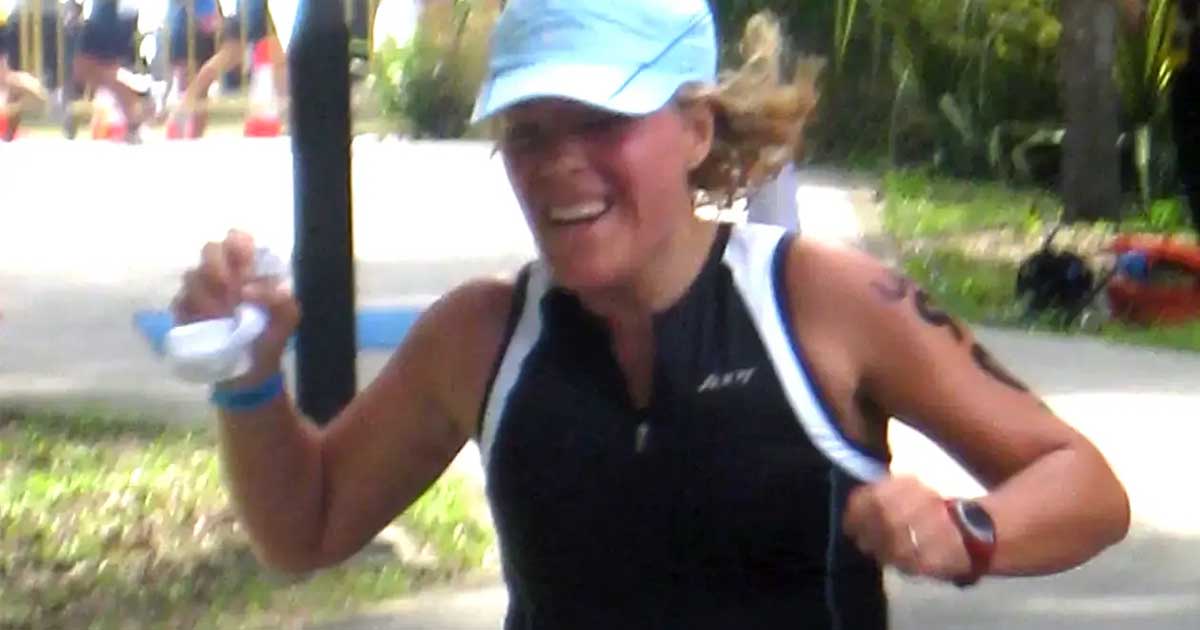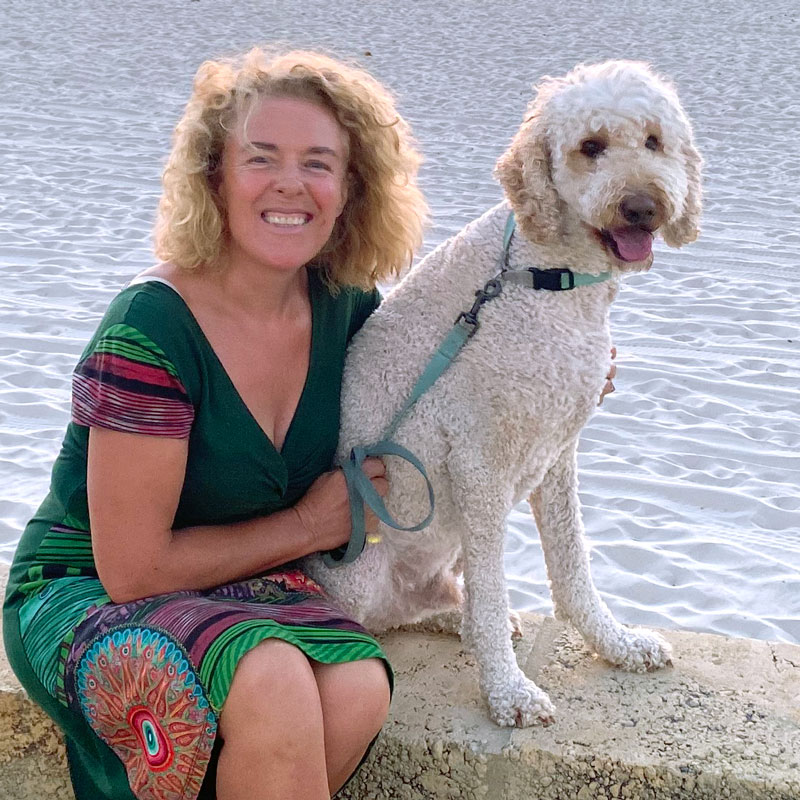 I have been completely overwhelmed by the outpouring of support that I received from thousands of people following the publication of my article in the Irish Times last week.
I have been completely overwhelmed by the outpouring of support that I received from thousands of people following the publication of my article in the Irish Times last week.
This week’s blog is dedicated especially to the many people who took the time to email me to share the story of your own struggle and who have subscribed to this blog. Some of the messages I received brought me to tears as I empathise deeply with the pain you are going through in the hold you feel alcohol has over you. Many have asked me for tips on how to stop drinking. While I have done my best to respond individually to as many of those emails as possible, there is much more I want to share about how I took back my power from the clutches of the wine witch.
One of the comments I read on my article when it appeared on the Irish Times Facebook page really hit hard:
God invented whiskey so that the Irish wouldn’t rule the world.
Think about that for a minute. While you can argue that it was the Scottish who invented whiskey, the message is much deeper than that, don’t you think?
The power booze had over me
It resonates with me because I experienced a complete loss of power when I was drinking to excess. My life revolved around opening a bottle of wine and escaping from life rather than dealing with life and living it to my full potential. Coming from Ireland, I know only too well how we as a nation are absolute divils (Irishism) at brushing stuff under the carpet and not facing up to the facts of our messed-up thinking and unhealthy behaviours. These are the kind of things I used to think and feel when I was at my lowest, with the least amount of power left:
- My life is shit; I need a drink.
- I’m so angry with the world, I might as well drink to forget all about it.
- I’ve worked really hard today, I deserve a drink or three.
- My kids are doing my head in, a drink will help.
- I can’t be bothered pursuing my dreams, they’re unrealistic. Where’s my wine?
- I’ve got to go out to a party, I’d better have a few drinks first.
- I’m not going to that boring dinner party; they hardly drink and will be looking down their noses at me.
- Oh God, my head hurts, I think I’ll give the gym a miss. I need the hair of the dog.
- Thank goodness my husband has put an order in, and we’ve got plenty of wine to keep us going for the week. How lucky are we that good wines are so cheap!
My authentic self was buried
For such a long time, I believed that I was a strong woman, that I had endured so much and was able to steer my life in whatever direction I chose. Until I got sober. Then it became crystal clear to me how I had allowed the power to be sucked out of me with each glass of wine that I poured down my throat. That loss of power wreaked havoc on my sense of self. It was as though I had disconnected from the real me and allowed the intoxicated version of me to take over. You’ve probably heard the expression ‘the opposite of addiction is connection’ bandied about. When I first heard it I thought it meant that when you make good friends you can stop being addicted. But that’s not the kind of connection it’s referring to. It’s about the connection we have to our authentic self. You know that part of you that stares in awe at the stars in the night sky, the part that is awakened when you see a new baby or looks out in wonder at the expanse of the ocean or feels transfixed to the ebb and flow of a river gently tickling your feet, or at peace in a green meadow while watching new-born lambs dancing and prancing. Connecting to your authentic self allows you to see that you are part of this universe, with all your flaws and all your uniqueness. The path to finding this authentic self is through introspection. It’s only possible when we go inside and find that person within. You are in there.
The journey from small, innocent, care-free children into adults often involves experiences of trauma, neglect or abuse that cause a disconnection to take place from that authentic self. All those childhood dreams go too, and the result is a person who is either deeply sad, anxious, depressed, angry, and disconnected from their true self. Then shame and regret set in. Shame is seriously toxic. It contributed hugely to the anxiety I developed from a young age. It’s what made me want to drink. The alcohol combined with anxiety and shame made for a potent Molotov cocktail that nearly killed me.
Hypervigilance
Not everyone carries shame in the way I did. From what I’m hearing lately, people are experiencing all sorts of mental health challenges as a direct result of the global pandemic. If people were grappling with anxiety or depression prior to the pandemic, then we’re seeing those conditions being exacerbated by what’s happening in the world. Many people are living in a state of hypervigilance brought on by the threat and uncertainty of the plague. This results in feelings of crippling anxiety, and it comes as no surprise that there has been a significant increase in the number of people turning to alcohol to numb those feelings.
For a long time, I was scared that those feelings were going to kill me. In sobriety I soon learnt that those feelings will not kill me, but the booze I was using to numb them came close to stealing my life from me.
How I got sober
It all started with a decision. I decided that I wanted my power back. I decided that I alone am responsible for my life and how it should be lived.
These are the steps I took:
- I wrote down the words ‘I do not want to drink anymore.’
- I told the people closest to me in my life and I asked them for their support.
- I went to see my doctor and told him the truth about my drinking. He referred me to a service that provides counselling to people with alcohol and/or other drug (AOD) issues. While I was on the waiting list (sadly, there are huge demands on these services – proving that we are not alone in our struggle), I joined online support groups on Facebook.
- I researched the life out of alcohol and how it affects the body and mind. The more I learned, the more I gasped. Eventually, I came to the start realisation that my carefree days of drinking were over, I knew too much.
- When I finally got in to see a counsellor, I worked on taking full responsibility for my actions and stopped blaming people and stuff that had happened to me. I owned up to the role I played in my own drama. The stuff that happened to me in my younger years that was out of my control was validated and I received compassion and empathy from my counsellor. I cried. I reconnected with that lost, anxious child who felt she didn’t belong. I began to reconnect with my authentic self.
- I attended a women’s support group through the AOD service provider which was possibly the most powerful thing I experienced. Sitting in a circle and listening to each woman speak from the heart, often through buckets of tears, about their traumas, the abuse they’d experienced, the way they’d dealt with it etc made me sit up and feel real empathy and compassion for them. I turned that empathy and compassion on myself too because every person’s experience is unique to them, and no one has the right to tell you that your experience doesn’t count. Of course yours counts too!
- I listened to podcasts, watched documentaries, read books about people overcoming adversity in their lives and became inspired. I came to the conclusion that none of us needs to be saved or rescued… what we need is the knowledge of our own power and to learn how to access it. Alcohol is like a beta blocker for that power. Slowly I began to acknowledge that as a human being, I have that power too, just like everyone else.
- Feelings… wayhay… OMG, I have had to let them in. I have had to feel the pain I kept buried. The pain of the past. Through counselling, I learnt a very interesting fact about pain and it’s this: it seeks punishment. In suppressing my feelings, and numbing them with alcohol, they came back with a vengeance. Now, I know that life is all about feeling – the good, the bad and the often impossible, but as we learn to accept them, they pass.
- Counselling also gave me the space and support to face the truth about myself, the beautiful things about me AND the ugly things about me. In being able to accept the truth about me, I set myself free.
Managing my mental health now
Counselling is key. While I don’t need to go often these days, I will always call upon it when I feel I’m thinking myself into a dark place. I also put other strategies into place to protect me from the temptation of reaching for a drink when I feel stressed, anxious or even bored. I embrace deep breathing, yoga, walking, reading, gymwork, mindfulness, meditation and the greatest panacea of them all, being in nature. I get so much strength from sitting quietly in a place of natural beauty, whether that’s by a lake, under a tree, in a garden, close to the sea, alongside a river, in a forest, on a lawn… you name it, I love it all. Grounding myself in the natural world fills my cup with serenity, power, and a desire to pursue my sober life with increased fervour.
In taking back my power, I have started to do the things I always dreamed of doing such as writing and being more creative. I am on track to becoming a qualified counsellor by the end of this year and I can’t wait to put my knowledge into practice as I love helping other people to take back their own power.
Love sober
One of the amazing benefits I’ve reaped in sobriety is more loving relationships with the people I care about. They have supported me every step of the way and I will forever be grateful to them. I find I am a more loving person now. I love being sober and I love how I love sober.
I believe that we learn very little by always trying to avoid our feelings. I know that I have learnt the most about myself by allowing myself to be vulnerable and not being afraid to show that vulnerability to others. It is what connects us all. It is part of being human. When I am vulnerable, I am being my most authentic Gill.
When I was growing up in Ireland there was a huge shame associated with people who ‘aired their dirty laundry’ in public. This is what created a culture of shame. This is what has held people hostage and led them to believe that they’re defective and that they will be rejected if anyone should find out that they have a problem with drink or any other unhealthy behaviour. We have come some way in challenging this awful mentality, but we still have a long way to go. Don’t be afraid to be vulnerable. Tell your friends, your doctor, your family that you are struggling and ask for help. You will not regret it.
Finally, to my new readers who reached out to me after reading my article, I want you to know that in doing so, you started the recovery process – the process of recovering the person you were always meant to be. I am very excited for you and wish you all the best in pursuing it with an open mind and heart but with all the support you deserve. Please do share this with others who you feel might benefit from reading my writing.

